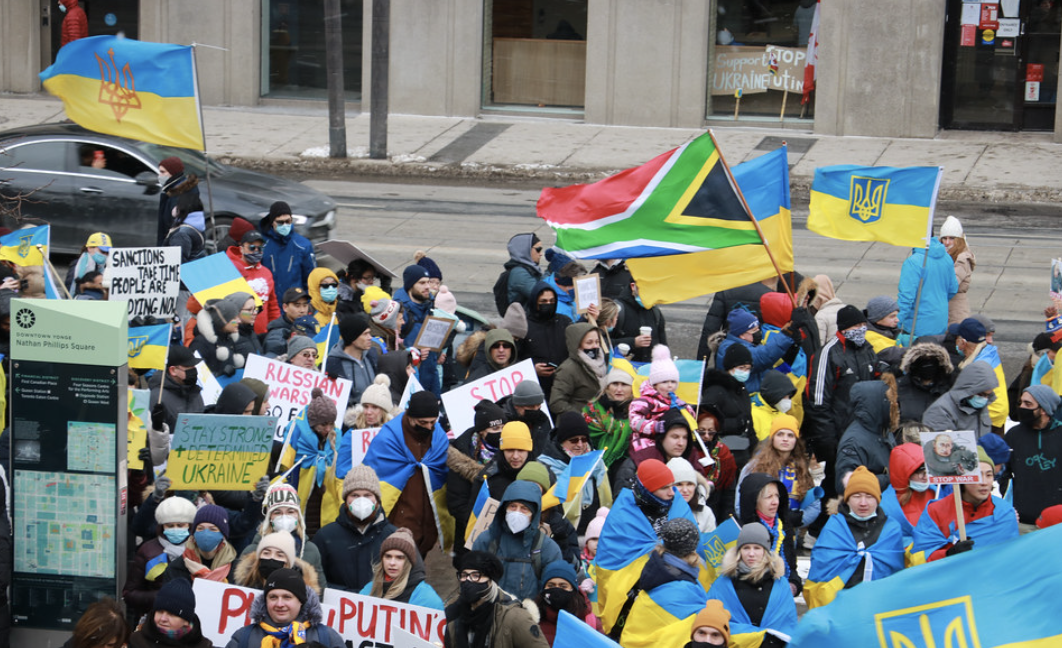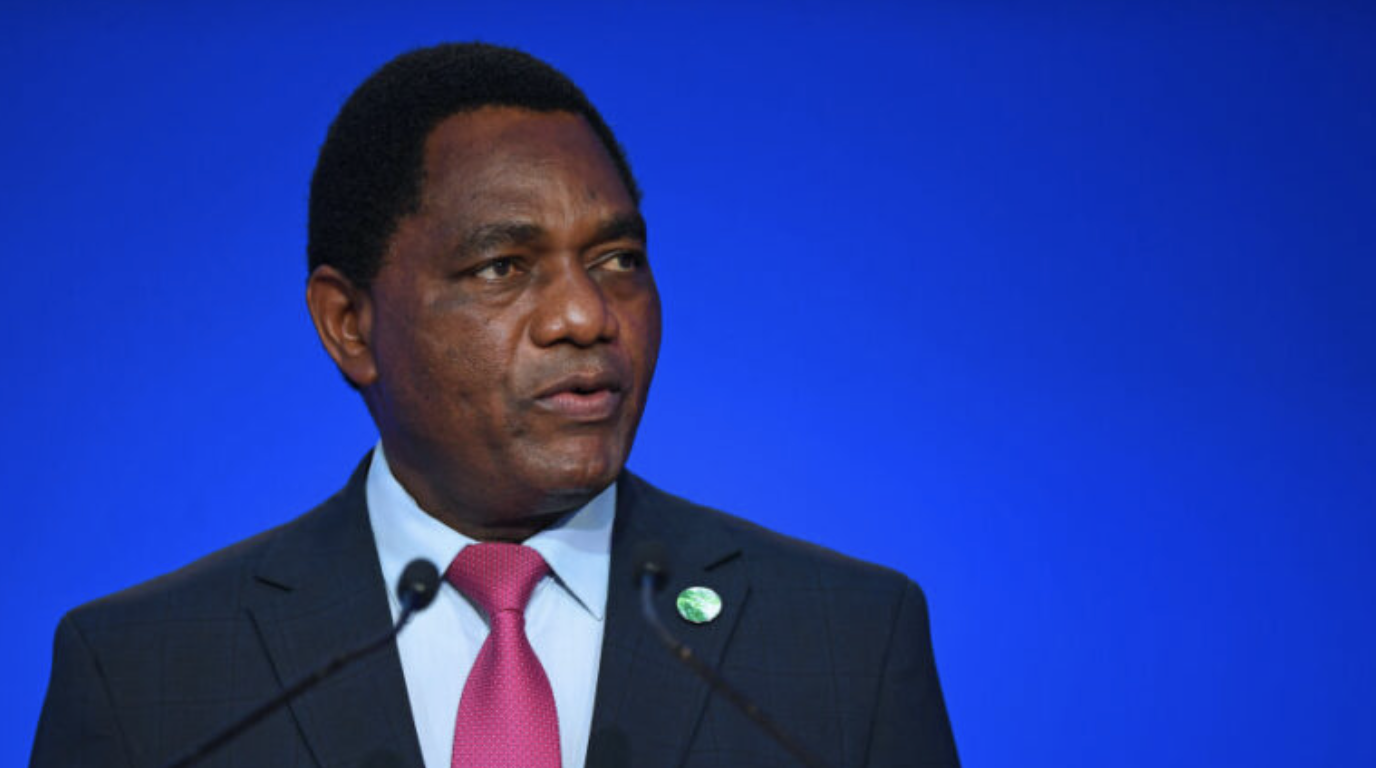News
What Could — and Should — the Ukraine War Cost South Africa?
The increasingly unambiguous position of the ANC-led government towards Russia’s war in Ukraine — trending towards unequivocal support of Moscow — could, and should not be, cost-free. It should at least penalise those selling the country’s values for a caviar lifestyle.

Director, The Brenthurst Foundation

Research Director, The Brenthurst Foundation

Foreign policy has traditionally been seen by South Africa’s ruling party as the one domain in which it could embellish its revolutionary credentials, with no or little collateral cost, while being conservative in its domestic economic affairs.
Hence the fraternal ties with Cuba, its constant anti-imperialist polemic, mutterings for Africa about a new international economic order, and failure to call out human rights transgressions across Africa (and among ANC allies elsewhere) since 1994.
A failure to uphold human rights has, to invert Mandela’s famous phrase, been the light that has constantly guided post-apartheid South Africa’s foreign policy post-Madiba.
Now, however, by supporting Russia, Pretoria is stepping into an altogether different realm, where the consequent prospect of pain could exponentially increase.
Attendance by Defence and Military Veterans Minister Thandi Modise at a security conference right in the middle of the conflict amid revelations of mass human rights atrocities perpetrated by the Russians against Ukrainian civilians was a sign.
So too was the ANC Youth League’s shameful endorsement of sham referenda in military-occupied territories where “votes” were cast endorsing Russia’s occupation of Ukrainian territory.
Then, the loading of the Lady R in Simon’s Town naval dockyard was an even clearer indication of actual and not simply moral malfeasance. The scuttle since is that the Lady R was loaded with missile and artillery propellant and ordnance, much of this said to be expired materiel that otherwise would have had to be destroyed.
The ANC government has neither confirmed nor denied these charges. In answer to a question posed by the opposition in Parliament, Modise wrote in December last year: “I will be giving you hearsay and tomorrow you will be saying I am a liar. And I am very clear: I don’t want to be called a liar. I am waiting for the paperwork, I am waiting for the people who know.”
Surely that paperwork — even by the standards of a notoriously slow bureaucracy — would have been done by now. Yet South Africa is yet to hear Modise’s explanation. Until then, the “liar” tag is going to stick.
Follow the money
This is the half of it. There are rumours, too, of large-scale Russian oil shipments to South Africa, and of roubles being washed through South African banks. It would be surprising on current form if these deals were not middle-manned by ANC big-wigs who appear to admire Russia’s oil oligarch model.
But, as ever, the answer to these suspicions and allegations is in the money trail.
This can only be encouraged by an international environment in which there are no consequences. There are a variety of tools to signal American opprobrium for instance, including the Magnitsky Act, a tool of individual sanctions named for the tax lawyer Sergei Magnitsky who died in a Moscow prison in 2009.
It authorises the US government to sanction those foreign government officials worldwide who are deemed to be human rights offenders by freezing their assets and preventing them from entering the US.
Question is whether the US — and South Africa’s other purported allies — care enough about South Africans or care more about intergovernmental relations to make this call?
There is a difference, widening apparently according to opinion polls, between the two groups. More than 70% of South Africans believe the government ought to condemn the war and two-thirds believe it should offer Ukraine military, diplomatic or moral support, a survey by The Brenthurst Foundation has shown.
The ANC’s moral vacuum reinforces the perception that it is an out-of-touch old-style “liberation movement” unable to provide leadership in the modern era.
Even ANC stalwart Ronnie Kasrils has admitted on these pages that he is “by no means an uncritical fan of Putin or capitalist Russia”. That’s a relief, since it was a bit hard to tell.
But there are wider consequences to remaining schtum. South Africa is rumoured not to be alone in profiting from this war, despite the whining about Africa being a victim of higher food, oil and fertiliser prices, and the depression in global earnings.
How much Malian and Burkinabe gold, one should ask, is being shipped to Moscow right now with the operations of the Wagner group in that country? Just how many Russian arms exports are being funnelled into this and other conflicts, especially via Russian allies in Uganda, Burundi and Sudan?

Such activities add a premium to the perception of the risks of doing business in South Africa and elsewhere.
Ideological windmill
The ANC will hope it can slip and slide its way out of this. President Cyril Ramaphosa will claim that he is doing this to be able to help position South Africa to make peace in Ukraine, even though South African credibility is now shot, no more an honest broker in Kyiv as it is today in Tel Aviv.
Anyway, the unprincipled predilection for compromise that would allow Russia to hold on to territory it has stolen by force won’t just now suit the Ukrainians.
Essentially, the ANC has mortgaged one of South Africa’s last remaining selling points — its human rights traditions and common liberal democratic values — for a combination of ideological windmill tilting and the prospect of grubby financial gain.
Its friend Russia has shown, yet again, that states which appear strong on the outside can be weak on the inside. State strength is not measured in terms of the hardware of legitimacy through performance (not that South Africa or Russia fare particularly well in this regard), but also inner strengths: political legitimacy, the ability to provide services to the population, care and the levels of trust that accompany these values.
Although a few people might be profiting from this moral collapse, as ever, the people will pay, including those South Africans for whom the cost of doing business has just got steeper.
At the very least, the international community, led by the US, should do us all a favour and ringfence and penalise those leading the country down this darkening path.
This article originally appeared on the Daily Maverick
Photo: Flickr

